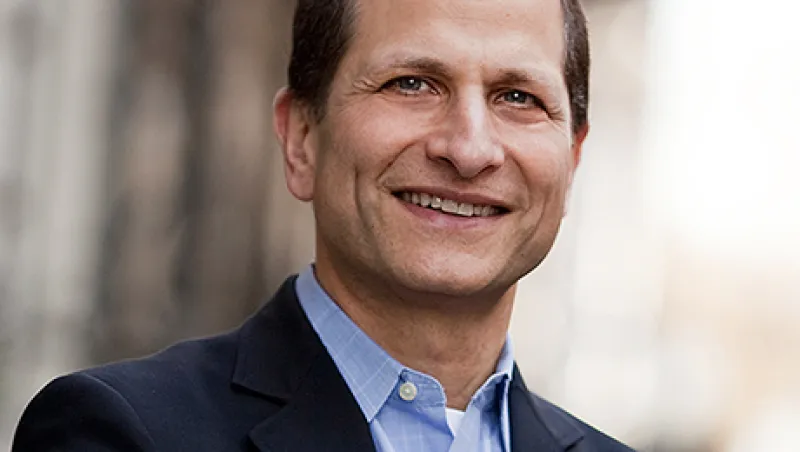Growing up in Schenectady, New York, Lee Wasserman fell in love with the outdoors on Boy Scout camping trips. “As a kid from a small city with a lot of concrete, I was just taken aback by the natural beauty of the Adirondacks,” says Wasserman, 58. He has since devoted much of his life to fighting for the environment after learning the history of how that mountain range became the first place in the U.S. to be statutorily preserved.
As director of the Rockefeller Family Fund, a New York–based charity started in 1967 by heirs of oil tycoon John D. Rockefeller, Wasserman has spent much of his time spearheading initiatives to tackle climate change. At the end of March, the $130 million fund turned heads when it announced it was dumping its fossil fuel investments, starting with coal, the Canadian oil sands and Exxon Mobil Corp. — the corporate descendant of Rockefeller’s Standard Oil Co.
Wasserman knows that shedding the 6 percent of the portfolio that is invested in fossil fuels is unlikely to change corporate behavior. “It’s not a solution,” he says. “It’s a statement more than anything.”
But the symbolic move is music to the ears of Bill McKibben, co-founder of environmental activist group 350.org. In a 2012 op-ed for Rolling Stone, McKibben popularized and galvanized the Divest-Invest movement that has since swept across college campuses. “One of the key hopes was to revoke the social license of the big fossil fuel companies, and every time an important institution joins in, that’s a big step forward,” he says.
Divesting from fossil fuels aligns the Rockefeller fund’s portfolio with its environmental program, one of the charity’s three areas of focus along with women’s rights and government accountability. In 2006, given the fund’s modest endowment, Wasserman chose to dedicate environmental program resources entirely to climate change, or, as he put it, “the monster that has to be reckoned with.”
Prior to joining the Rockefeller fund in 1999, he worked for the Philadelphia-based Pew Charitable Trusts, where he helped the head of the nonprofit’s environmental program with special projects. Before that, Wasserman ran Environmental Advocates of New York, an Albany-based nonprofit that makes policy recommendations for the state government on everything from clean-air statutes to closing incinerators.
Last year the Rockefeller fund launched an initiative to help suffering Appalachian communities overcome the recent collapse of the coal industry. The Just Transition Fund, created with a coalition of public and private grant makers known as the Appalachia Funders Network, helped local organizations to secure a cool $2.5 million in federal grants from an economic revitalization scheme dubbed the POWER Initiative.
Looking beyond divestment, environmentally minded investors often take a step further and bankroll green companies. The Rockefeller Brothers Fund, an older, larger cousin of the Rockefeller Family Fund, got out of fossil fuels in 2014 after deciding to allocate up to 10 percent of its $860 million in assets to clean-energy technologies and other businesses focused on climate change.
“We’re watching our colleagues down the hall at the Rockefeller Brothers Fund closely in that regard,” Wasserman says. “But we want to make sure we get the divestment piece right before we take the next step.”





